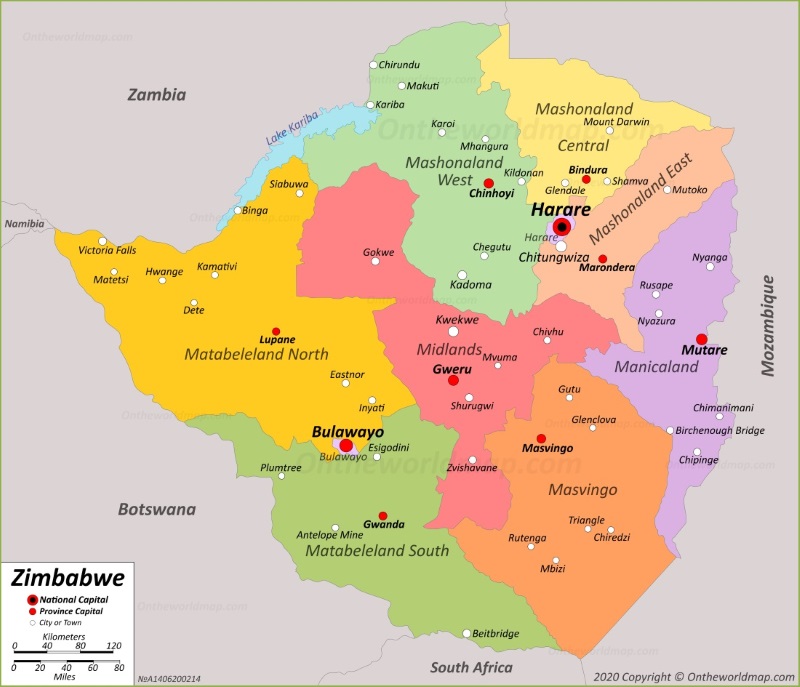Image Courtesy Maps of Zimbabwe
OPPOSITION parties have called for the total lifting of sanctions on Zimbabwe as the country has made tremendous progress in implementing economic and political reforms.
In a statement, opposition parties that are part of the Political Actors Dialogue (Polad) said the European Union (EU), which this week removed the last remaining Zimbabwean citizens from its sanctions, should pursue multilateralism and desist from prescriptive diplomacy which borders on interference.
Polad's International Relations and Re-engagement Committee (IRRC) said while it is encouraged by the latest decision taken by the EU, which removed Vice President Constantino Chiwenga, Zimbabwe Defence Forces Commander Philip Valerio Sibanda and former First Lady Grace Mugabe from the sanctions list, there is need for the 27-member bloc to go a step further and remove any form of embargo on Zimbabwe.
"Polad IRRC encourages the EU to desist from what seemingly is clear interference in Zimbabwe's democratic and governance space by prescribing to the Government how to administer not only its laws but, the governance architecture".
The opposition parties added that President Mnangagwa's administration has made it clear that it is preparing the country for an upper-middle-income society by 2030 and the reforms are a key pillar towards economic revival and political and social development which is expected to improve the livelihoods of ordinary people.
The EU declaration on Zimbabwe, Polad said, is indicative of the continued need to dialogue not only as part of international diplomatic engagement but also the need to bridge the previously fragile EU-Zimbabwe relations.
"Zimbabwe continues to make positive strides to engage with the West and the West has reciprocated the gesture by welcoming Zimbabwe back as part of the international community.
"This is evidenced by the recent international invitations extended to Zimbabwe namely, Cop-26 in Scotland and the EU-Africa Summit held in Brussels.
"Polad IRRC remains concerned by the unwillingness of the EU to review the illegal restrictive measures on the Zimbabwe Defence Forces Industries (ZDI). Polad IRRC reiterates that, these illegal restrictive measures are not targeted, but have for the last 20 years, demonstrated that they have far-reaching negative impact on ordinary Zimbabweans.
"Further, Polad IRRC acknowledges that the democratic blocks in the space of human rights, law reform, rule of law is work in progress and welcome any assistance that the EU may extend to assist Zimbabwe in its quest to realise its international human rights obligations.
"Polad IRRC reiterates that dialogue is the only democratic mechanism to improve relations not only with the West but even at domestic level," read the statement in part.
President Mnangagwa has championed the implementation of several reforms in areas such as security, the economy, media, and justice delivery and this has not gone unnoticed.
Among the notable reforms are the repealing of the Access to Information and Protection of Privacy Act and the Public Order and Security Act.
Six new independent television stations have been licensed to operate, and the opening of the airwaves has been hailed as a crucial step towards promoting transparency. Bulawayo News24






